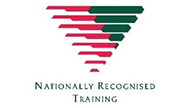CHC52021 Diploma of Community Services
Introduction
Are you looking to grow your skills and experience within the community services sector? The Diploma of Community Services is a specialized course, focused on enhancing the skills of workers within the community services sector to provide higher-level skills such as program coordination, case management or business development.
This qualification is designed with industry conditions in mind, with electives selected to provide students with a comprehensive skillset across areas of increased and growing demand such as the provision of counselling, support to those affected by domestic and family violence, supporting clients with mental health needs and client advocacy.
Course Description
This qualification reflects the role of community services workers involved in the delivery, management and coordination of person-centred services to individuals, groups, and communities.
At this level, workers have specialised skills in community services and work autonomously within their scope of practice under broad directions from senior management.
Workers support people to make changes in their lives to improve personal and social wellbeing and may also have responsibility for the supervision of other workers and volunteers. They may also undertake case management and program coordination.
To achieve this qualification, the candidate must have completed at least 200 hours of work as detailed in the Assessment Requirements of units of competency.
The skills in this qualification must be applied in accordance with Commonwealth and State or Territory legislation, Australian standards and industry codes of practice.
No occupational licensing, certification or specific legislative requirements apply to this qualification at the time of publication.
Course Duration
1- 2 Years
The timeframe to complete the qualification is a maximum of 2 years.
Course Delivery
The course is provided through a combination of blended mode of delivery which include the following.
- Face to face (classroom) and / or Online delivery
- Classroom Activity
- Self-study
- Work Placement
Assessment
Assessment methods include the following:
- Knowledge Task (KT)
- Skills Tasks (ST) / Simulated Activity / Project Task (PT)
- Presentation / Role-plays
- Work placement Task
- Workplace Observation
Entry Requirement
There are no pre-requisites or any other training package entry requirements for this course. However, it is strongly advised that individuals complete lower-level qualifications and/or acquire industry experience prior to enrolling in the course.
AICE has in place admission criteria for courses in its scope as required by its ‘Application and Enrolment Procedure for VET Courses’ to ensure that candidates meet industry requirements.
- Completion of Year 12 studies or higher or equivalent
- Applicants are required to have successfully completed an LLN Test.
- It is also essential for the student to possess basic computer skills.
Additional Requirements For Work Placement
- A satisfactory National Police Clearance / Australian Federal Police Clearance Certificate (AFP) / NCC will be required for all practical placements
- Working with children Check
- NDIS Clearance Check
- Current Vaccination/Immunization Certificate and Proof of Immunity
Qualification Requirements
Students must complete a total of 20 units including 12 core units and 8 elective units listed below.
Core Units
CHCDIV001 Work with diverse people
CHCLEG003 Manage Legal and Ethical Compliance
HLTWHS003 Maintain work health and safety
CHCCCS007 Develop and Implement Service Programs
CHCMGT005 Facilitate Workplace Debriefing and Support Processes
CHCPRP003 Reflect on and Improve Own Professional Practice
CHCCCS004 Assess Coexisting Needs
CHCCCS019 Recognise and respond to crisis situations
CHCDFV001 Recognise and respond appropriately to domestic and family violence
CHCDIV002 Promote Aboriginal and/or Torres Strait Islander cultural safety
CHCDEV005 Analyse Impacts of Sociological Factors on Clients in Community Work and Services
CHCCSM013 Facilitate and review case management
Elective units
CHCCOM003 Develop Workplace Communication Strategies
CHCPRP001 Develop and maintain networks and collaborative partnerships
CHCADV002 Provide Advocacy and Representation Services
CHCCDE027 Implement Community Development Strategies
CHCDEV004 Confirm Client Development Status
CHCMHS001 Work with People with Mental Health Issues
CHCMGT003 Lead the work team
CHCDIS017 Facilitate community participation and social inclusion
Students enrolled in this course must complete a mandatory work placement of 240 hours. Note: students are required to source their own work placement.
For more information, please visit https://training.gov.au/training/details/CHC52021
Pathways to Further Study
Candidates may progress to higher level qualifications within and/or across the community sector such as;
- CHC62015 Advanced Diploma of Community Sector Management
- CHC82015 Graduate Certificate in Client Assessment and Case Management
- Bachelor of Community Services
- Bachelor of Human Services
- Bachelor of Social Work
Employment Outcome
After successful completion of the program, the candidates may gain employment in the community sector.
After successful completion of the program, the candidates may gain employment in disability support centers, residential group homes, training resource centers, day respite centers and open employment services, other community settings.
Occupational titles may include:
- Community Care Manager
- Coordinator of Volunteer Work
- Team Leader
- Care Team Leader
- Family Services Coordinator
- Support Facilitator (Community Services)
Course Fees
Concession – $0.00*
Non-concession – $0.00*
* Please note that the below eligibility criteria will apply to be eligible for free training; you must have left school*, have your primary place of residence in Western Australia, and are either:
- an Australian citizen; or
- a permanent visa holder; or
- a visa sub-class 309, 444, 785, 790, or 820; or
- a bridging visa E holder (subclasses 050 and 051) who has made a valid application for a visa subclass 785 or 790;
- Ukraine citizens who are holders of a visa subclass 449 or 786;
- Afghan citizens who are holders of a visa sub-class 449; or
- Holders of a bridging visa who are eligible to work and who have made a valid application for a subclass 866.
- a dependent or spouse of the primary holder of a visa subclass 457
- a bridging visa holder who has made a valid application for a visa subclass 866; or
Year 12 school students who are leaving school can access a subsidised training place from 23 October 2023.
First Nations people, young people, people out of work or receiving income support, unpaid carers, people with disability, and women facing economic insecurity are particularly encouraged to take advantage of this opportunity for fee free training.
For more information, please visit the FAQs below for details:
https://www.jobsandskills.wa.gov.au/skillsready#frequently-asked-questions
Campus Location
Head office: ‘Mezzanine Level’ 109 St Georges Terrace | Perth | WA 6000
Course Start Dates
Please contact office staff on 08 6373 2425 or email at info@aice.edu.au to find out about intake dates.
Enrolment
Please contact office staff on 08 6373 2425 or click GET IN TOUCH to contact our friendly staff to find out or any further queries related to the enrolment process.
Please be advised that the submission of the AICE enrolment application form does not confirm enrolment or guarantee for funding. Enrolment is depending upon the confirmation of funding and the student’s capacity to satisfy the eligibility requirements.
Kindly refer to accredited courses for full-fee qualifications.
Course Intake Dates and Enrolment
or
Please contact office staff on 08 6373 2425 to find out or any further queries related to the enrolment process.
| Course Duration | : | 1- 2 Years |
| AQF Level | : | 5 |
| Course Delivery | : | Blended Delivery Mode |
| Campus | : | Perth |
Accreditation


Government Funded Course


